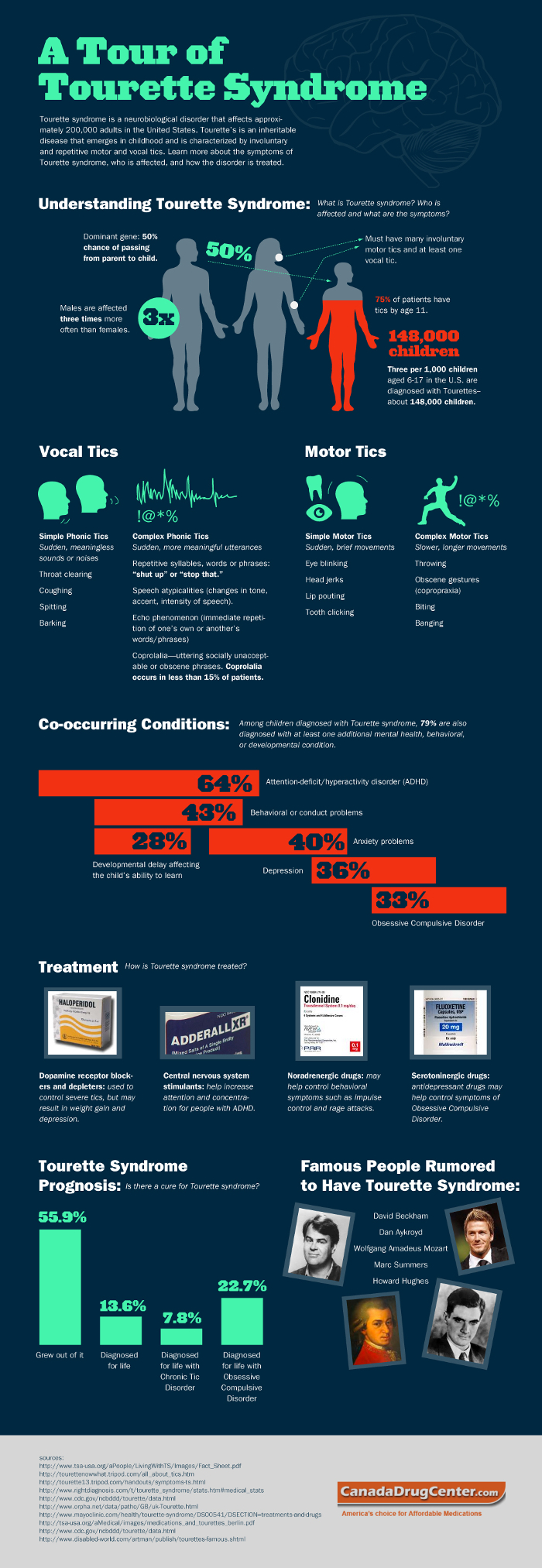Turrets syndrome is a neurological disorder that begins in childhood. This is a nervous system syndrome that involves unwanted sounds or repetitive movements that cannot be controlled. For instance, a child may repeatedly blink his eyes, jerk his head, or shrug his shoulders. Worst is that that a person with Turrets syndrome may blurt out offensive words unintentionally.
The signs and symptoms of Turrets syndrome may show up between ages two to twelve years old. Also, symptoms of this condition can be clearly seen when a child is around seven years old. Males are more than four times at risk of Turrets syndrome than females.
Turrets syndrome has no cure, and a person suffering from it can live a normal life span. Many people suffering from the condition do not need treatment if the symptoms are not troublesome. Symptoms of turrets syndrome can become mild or can be lessened after a child has reached teen years.
Unwanted sounds or movements, otherwise known as “tics” are the most common symptoms of Turrets syndrome. Besides, symptoms can range from mild to severe. Mild symptoms cannot interfere with living a normal life, but severe symptoms can interfere with communication and the quality of daily life. Tics are classified as:
10 Simple Tics
Simple tics are sudden, repetitive, and brief movement of limited muscle groups.
1. Eye Blinking
2. Shoulder Shrugging
3. Head Jerking
4. Hiccupping
5. Throat Clearing
6. Finger Flexing
7. Sticking the Tongue Out
8. Yelling
9. Eye Darting
10. Barking
9 Complex Tics
Complex tics are distinct and coordinated movement patterns, which involve several muscle groups.
1. Touching Other People
2. Touching the Nose
3. Obscene Gesturing
4. Smelling Objects
5. Flapping the Arms
6. Hopping
7. Repeating others’ Words or Phrases
8. Using Different Tones of Voice
9. Using Vulgar, Swear, or Obscene
5 Tics Involving Motor Movements
Tics that involve motor movements usually begin before vocal tics occur. However, the spectrum of tics that people experience is extremely diverse, and there is no typical case. If you have Turrets syndrome, the tics you are experiencing may:
1. Occur During Sleep
2. Vary in Frequency, Severity, and Type
3. Evolve Into other Types of Tics Over Time
4. Get worse during teenage years, but improve during the adulthood transition.
5. Get worse if you are stressed, ill, excited, tired, stressed, or anxious.
Before vocal or motor tic, you will experience a premonitory urge, and an uncomfortable bodily sensation like a tingle, tension, or an itch, and the expression of tics brings relief to these sensations.
Parents should see a doctor if their child is displaying involuntary sounds or movements. This is essential as not all tics are symptoms of Turrets syndrome. Children may develop tics, which can last for few weeks and event months, but go away on their own. A medical evaluation is important, especially when your child is showing unusual behavior. Your doctor will identify the cause of the unusual behavior of your child, and determine if there is a problem with him or her.
